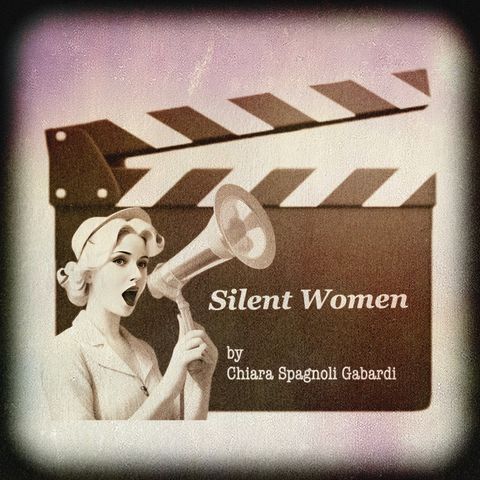
Contactos
Información
For many decades women cinéastes were swept into oblivion. At long last their visual artistry has been brought back to the light, but what would happen if some of their...
mostra másThe intent of this collection of poems is to give a voice to some female filmmakers of the silent era, 21 like our current century, and to trigger in listeners the desire to find more about them.
Each terza rima poem is introduced with music by a female composer of the same country of the filmmaker, who might have listened to her composition while at work.
Written and recited by Chiara Spagnoli Gabardi
Sound editing by Massimo Privitera
(Musicologist, Founding Director of Colonne Sonore magazine, and longtime friend)

For many decades women cinéastes were swept into oblivion. At long last their visual artistry has been brought back to the light, but what would happen if some of their...
mostra másThe intent of this collection of poems is to give a voice to some female filmmakers of the silent era, 21 like our current century, and to trigger in listeners the desire to find more about them.
Each terza rima poem is introduced with music by a female composer of the same country of the filmmaker, who might have listened to her composition while at work.
Written and recited by Chiara Spagnoli Gabardi
Sound editing by Massimo Privitera
(Musicologist, Founding Director of Colonne Sonore magazine, and longtime friend)
Información
| Autor | Chiara Spagnoli Gabardi |
| Organización | Chiara Isabella Spagnoli Gabar |
| Categorías | Historia del cine , Historia de la música |
| Página web | - |
| chiaraisabellaspagnoligabardi@gmail.com |
Copyright 2024 - Spreaker Inc. an iHeartMedia Company
